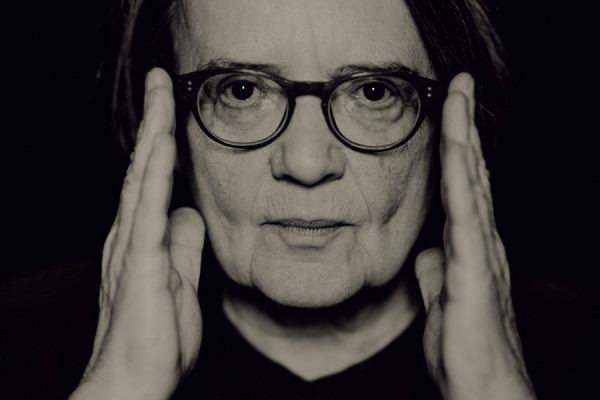“The right person in the right place,” this was a response to Agnieszka Holland’s appointment as President of the European Film Awards in 2014. It is hardly surprising since the Polish director has drawn heavily from her Polish native history and culture while being a citizen of the Western World with excellent knowledge of the art of the Old and the New World.
It was mid-1960s. The French films surfed the New Wave, Federico Fellini wooed and charmed in Italy and up in the North Ingmar Bergman explored the twisted facets of the human psyche. Perhaps, never before and never after had the Tenth Muse been more powerful and irresistible. Agnieszka Holland fell for it too. Initially interested in painting and literature, she ultimately resolved to devote herself to the cinema, that special fusion of words and images.
As the gloomy 1968 approached, she could not hope to get admitted to Lodz Film School for political reasons. Inspired by the achievements of the authors of the Czechoslovak New Wave, she decided to take entrance exams to the Film and TV School of the Academy of Performing Arts (FAMU) in Prague. Still at the Academy, she met Laco Adamik, her future husband of some years (the daughter of this director couple is Kasia Adamik, the author of films such as “Amok”, to be seen at the Two Riversides Festival). At FAMU, an excellent director, Karel Kachyňa was one of the teachers and Milan Kundera himself had a writing course. It is no coincidence that Agnieszka Holland’s name appears on the Polish translation of Kundera’s famous novel, “The Unbearable Lightness of Being” (1984). It is no surprise either that HBO chose the Polish director to make the “Burning Bush” mini-series (2013) about Jan Palach’s setting himself on fire and the consequences of that event.
Agnieszka Holland came back to Warsaw after graduation and joined Zespół Filmowy “X”, a film studio managed by Andrzej Wajda. She made her solo feature-length debut with “Provincial Actors” (1978), a collective portrayal of the theater community and an iconic piece of the Cinema of Moral Anxiety. Then she directed “Fever” (1980), which was shortlisted for the Golden Bear Award, and “A Lonely Woman” (1981), which took up the issue of forgotten single mothers left to their own resources. Martial law was declared in Poland when she was in Paris preparing for the production of Andrzej Wajda’s “Danton”. The director chose to stay in exile. Her first film made in the West, “Angry Harvest” (1985), received an Oscar nomination for Best Foreign Language Film (she would replicate that success with “In Darkness” of 2011). After 1989, Agnieszka Holland continued to work in Europe and the US and her films won dozens of awards at international festivals. She worked with outstanding actors, including Leonardo DiCaprio and David Thewlis (“Total Eclipse”, 1995) to name just two of the big names.
“I’m the film, and the film is me,” this is Agnieszka Holland’s description of her working style. Her full involvement in the creative process is not restricted to the directing department and manifests itself in other fields of the film art too. Holland is a writer of the screenplay of Andrzej Wajda’s “Rough Treatment” (1979) which received a honorable mention at Cannes Film Festival. She made appearances at the other end of the camera, for instance, in Ryszard Bugajski’s “Interrogation” (1982), in which she played a ‘devout’ communist torn by contradictions who is detained by the Department of Security; her role was instrumental in making the film a legend. Today, Agnieszka Holland increasingly appears as herself in documentaries that tell fascinating stories of her life and her no less exciting creative work. The “Cinema Lesson” in Kazimierz Dolny will offer a perfect chance to meet one of the most prominent directors of the Polish cinema in our times.
Bartosz Marzec







FOLLOW US